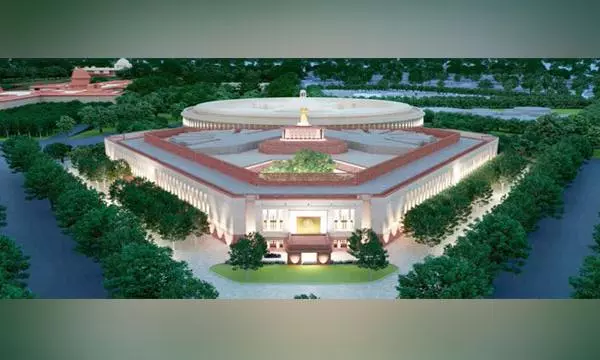DC Edit | Centre needs to allay fears in South over delimitation
Article 81 (2) of the Constitution mandates that each state shall be allotted a number of seats in the Lok Sabha “in such manner that the ratio between that number and the population of the state is, so far as practicable, the same for all states”

The demand for a delimitation process which could lead to a fair revision of seats in the Lok Sabha and distribution of seats among the states raised by Tamil Nadu chief minister M.K. Stalin needs a comprehensive answer by the Union government that goes beyond the qualified assurance by Union home minister Amit Shah that he has made. Mr Stalin has pointed to the Damocles’ Sword of a reduced representation in the House of People dangling over the southern states after delimitation and Mr Shah has dismissed the apprehension, saying the Union government will “make sure that not even one seat is reduced pro rata’ and of “whatever increase is there, southern states will get a fair share, there is no reason to doubt this”.
Article 81 (2) of the Constitution mandates that each state shall be allotted a number of seats in the Lok Sabha “in such manner that the ratio between that number and the population of the state is, so far as practicable, the same for all states”. This goes with the ethos of universal adult franchise which grants each of the eligible citizens the same say in the election of their representatives. Accordingly, the delimitation process was carried out after the first three censuses and the number of seats in the Lok Sabha was steadily raised until after the 1971 census.
The Parliament froze the process of revising the number of seats in 1976 for 25 years to give a push to the family planning programme which sought to bring down the rate of growth of population. The constitutional embargo banned a fresh delimitation exercise before the first census after 2001. It, in essence, carried an assurance that those states that successfully contained population growth will not be adversely affected by the delimitation process. The NDA government in 2001 sought to extend the ban by another 25 years on the same plea. The Constitution’s 84th Amendment Act, 2001, which it got passed, says in its statement of objects and reasons the following words: “to extend the current freeze on undertaking fresh delimitation up to the year 2026 as a motivational measure to enable the state government to pursue the agenda for population stabilisation”.
It is a fact that the southern states have been quite successful in implementing the family planning programme compared to their brethren in the north and hence they would be adversely impacted by a delimitation process unmindful of the impact of the “population stabilisation” efforts unlike in 1976 and 2001. Mr Stalin has pointed out that if the delimitation process takes the next census as the basis without a raise in the number of seats in the Lok Sabha, then the state’s seats in the Lok Sabha will come down from the present 39 to 31. The other major losers will be Andhra Pradesh and Telangana (42 to 34), Kerala (20 to 12), West Bengal (42 to 38), Odisha (21 to 18) and Karnataka (28 to 26).
A rise in the number of seats in the Lok Sabha with the new census as the basis would, in effect, have the same impact. The present ratio can be kept intact only if the number of seats of the southern states increases proportionately with the change in the total number, and not the population. The states that have done well in population control will have no case if Mr Shah’s reference to “pro rata” increase is an assurance to this effect.
It must be part of our national programme to help weak states catch up with the rest but that cannot be an excuse to punish those who have performed well; it serves no purpose to cut their role in national policy-making. Fairness in policies is a key ingredient to the survival and success of a true federal democratic republic.
